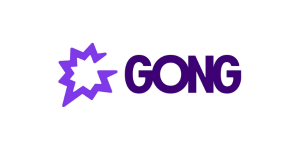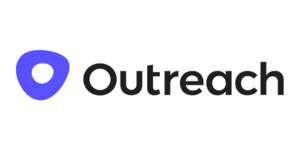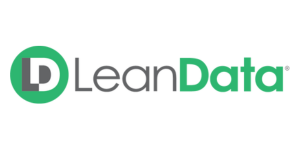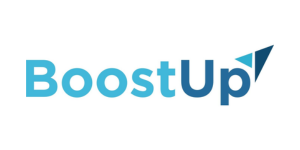Streamline sales, marketing, and customer success to drive revenue growth and efficiency with CRM for RevOps
CRM Software for RevOps Management
CRM for RevOps management is a powerful solution designed to unify sales, marketing, and customer success teams by providing a centralized platform for managing customer relationships and revenue operations. It streamlines workflows, automates repetitive tasks, and ensures data consistency across departments, eliminating silos that can hinder growth.
RevOps-focused CRMs, with features such as real-time analytics, automated lead tracking, and seamless integrations, enhance collaboration and enable businesses to optimize their revenue strategy. By implementing a CRM tailored for RevOps, organizations can improve forecasting accuracy, enhance customer experiences, and drive operational efficiency. The software enables data-driven decision-making by providing a single source of truth for all revenue-related metrics.
Features specific to RevOps management CRM
- Advanced revenue forecasting
A RevOps CRM leverages AI-driven analytics to provide accurate revenue forecasts based on historical data, current pipeline performance, and market trends. By identifying potential risks and opportunities within the sales pipeline, businesses can make proactive decisions to optimize revenue growth. These predictive insights help leadership teams allocate resources effectively and adjust strategies as needed.
- Cross-team collaboration
Seamless integration of sales, marketing, and customer success data ensures that all teams work from a shared source of truth. Built-in collaboration tools, such as shared dashboards, real-time notifications, and automated task assignments, improve efficiency and prevent miscommunication.
- Automated lead and pipeline management
CRM for RevOps automates lead capture, scoring, and assignment, ensuring that high-priority prospects are followed up on promptly. The system tracks pipeline movement in real time, highlighting bottlenecks and opportunities for acceleration. Automated workflows guide sales reps through the process, improving overall conversion rates.
- Customizable dashboards and real-time reporting
With dynamic dashboards, users can customize reports to track key performance indicators (KPIs) relevant to revenue operations. Real-time reporting ensures that decision-makers have up-to-date insights into sales performance, customer engagement, and revenue trends.
Best CRMs for RevOps Management

Clari is an AI-driven revenue intelligence platform that enhances sales forecasting, pipeline management, and revenue operations by providing real-time data and automation. With its powerful features, it helps teams identify risks and optimize strategies.
4.4

Gong is a revenue intelligence platform that analyzes customer interactions across calls, emails, and meetings to provide real-time insights for optimizing sales performance. With features like deal tracking, pipeline analysis, and automated call transcription, it helps businesses improve forecasting and drive revenue growth.
4.3

Outreach is a leading sales engagement and revenue operations platform that leverages automation and AI-driven insights to streamline outreach, manage multi-channel communications, and optimize sales execution.
4.4

LeanData is a revenue operations platform that automates lead management, account matching, and sales routing to streamline go-to-market processes. It improves sales and marketing alignment, enhances data accuracy, and helps teams prioritize high-value opportunities for faster conversions.
4.3

BoostUp.ai is an AI-powered revenue operations platform that enhances sales forecasting, pipeline management, and decision-making through machine learning and predictive analytics. It provides real-time insights, identifies risks, and helps sales teams prioritize high-value opportunities.
4.5

Revenue.io is a revenue intelligence platform that analyzes sales interactions to provide insights into conversations, behaviors, and patterns. Features like real-time coaching, automated call tracking, and performance analytics enable data-driven decision-making to boost engagement.
4.4

InsightSquared is a sales and revenue intelligence platform that uses AI-powered analytics to provide actionable insights, optimize performance, and improve forecasting accuracy. Its advanced reporting and trend analysis help sales teams identify opportunities and address bottlenecks.
4.3
Why RevOps Teams Need a CRM
Revenue Operations (RevOps) align sales, marketing, and customer success to drive predictable revenue growth. A powerful CRM built for RevOps ensures data consistency and automates key processes, leading to increased efficiency and revenue optimization.
It automates repetitive tasks, improves forecasting accuracy, and provides visibility into pipeline health, enabling data-driven decision-making. With seamless integrations, workflow automation, and enhanced customer insights, a CRM allows RevOps teams to improve efficiency, reduce friction in the buyer journey, and increase revenue. Investing in the right CRM can significantly impact a company's long-term success and scalability.
The Significance of RevOps Software
Aligning Sales, Marketing, and Customer Success
One of the primary challenges businesses encounter is the misalignment between sales, marketing, and customer success teams. When these departments lack coordination, leads can be overlooked, customer interactions may become inconsistent, and potential revenue opportunities might slip away. RevOps software enhances collaboration by offering a unified platform where all teams can track shared KPIs and revenue insights. Marketing can ensure high-quality leads are seamlessly handed off to sales, while customer success teams can proactively follow up to boost retention and overall customer satisfaction.
Enhancing Data Accuracy and Transparency
Fragmented data often results in inaccurate forecasts and poor decision-making. RevOps software eliminates these challenges by consolidating all customer and revenue-related data in one centralized system. With access to real-time insights, businesses can make data-driven decisions based on the latest metrics rather than outdated or incomplete information. Improved data accuracy minimizes duplicate records, incorrect entries, and costly errors that could negatively impact revenue.
Automating Revenue-Generating Processes
Manually managing revenue operations can be labor-intensive and prone to errors. RevOps software streamlines essential tasks such as lead distribution, pipeline tracking, sales forecasting, and revenue reporting. By automating these processes, teams can focus on high-impact activities that drive business growth. Automated workflows also enhance operational efficiency, allowing businesses to adapt quickly to market changes.
Elevating Customer Experience and Retention
Delivering a seamless customer experience is crucial for long-term success. RevOps software tracks customer interactions across multiple touchpoints, enabling businesses to personalize engagement strategies and increase conversion rates. When sales, marketing, and customer success teams work from the same customer data, they can maintain consistent and timely communication. This strengthens customer satisfaction, reduces churn, and fosters long-term brand loyalty.
Refining Revenue Forecasting and Strategic Decision-Making
Leveraging AI-powered analytics and real-time data, RevOps platforms empower businesses to anticipate revenue trends and uncover new growth opportunities. By identifying potential risks within the sales pipeline, leadership teams can proactively adjust strategies to mitigate losses before they impact revenue. Enhanced forecasting accuracy enables better resource allocation and helps maximize revenue potential.
Scaling with Business Growth
As organizations expand, managing revenue operations manually becomes increasingly complex. RevOps software provides scalable solutions for growing data volumes, intricate sales cycles, and evolving business demands. Seamless integration with CRM, ERP, and marketing tools ensures operational efficiency remains intact even as the company scales. With customizable workflows and adaptable dashboards, businesses can continuously optimize their RevOps strategy to support long-term growth.
Features to Look for in a RevOps CRM
A CRM designed for RevOps should include specialized functionalities that enhance operational efficiency and revenue performance. Key features are:
- Real-time data synchronization – Ensure that all teams have access to the same up-to-date information.
- Pipeline and deal management – Monitor deal progress and identify bottlenecks to boost conversions.
- Revenue analytics – Utilize AI-driven insights to forecast revenue growth and optimize strategies.
- Marketing and sales alignment tools – Automate lead routing, scoring, and engagement monitoring.
- Customizable workflows – Develop tailored automations for RevOps processes, such as renewals and upsells.
- Integrations with key tools – Seamlessly connect with marketing automation, finance, and customer support platforms.
How to Implement a CRM for RevOps
Implementing a Customer Relationship Management system for Revenue Operations (RevOps) is essential for optimizing business processes. Here’s a step-by-step guide to successfully implementing a CRM for RevOps.
1. Define Your RevOps Goals and Requirements
Before selecting a CRM, clearly outline your RevOps objectives. Identify key challenges, such as data silos, inefficient lead management, or lack of pipeline visibility. Determine the essential features your CRM should have, such as automation, reporting, and integration capabilities, to align with your business needs.
2. Choose the Right CRM Platform
Look for a platform that integrates seamlessly with existing tools like marketing automation, customer support, and finance systems. Consider scalability, user-friendliness, and customization options to ensure long-term usability and efficiency.
3. Align Teams and Secure Buy-In
A successful CRM implementation requires collaboration across sales, marketing, and customer success teams. Communicate the benefits of the CRM and involve key stakeholders early in the process. Providing training and addressing concerns will help ensure adoption and minimize resistance to change.
4. Clean and Migrate Data
Data accuracy is essential for CRM success. Clean and standardize customer records before migrating data from legacy systems to eliminate duplicates and errors. Work with IT and RevOps specialists to ensure a smooth and secure data transfer.
5. Customize and Configure the CRM
Tailor the CRM to align with your RevOps workflows. Customize fields, dashboards, and reports to ensure teams can access relevant data quickly. Set up automation rules for lead assignments, follow-ups, and reporting to streamline processes and improve efficiency.
6. Train Teams and Encourage Adoption
Providing comprehensive training is critical for CRM adoption. Offer hands-on sessions, documentation, and support resources to help teams understand how to use the system effectively. Encourage feedback and continuously refine the CRM setup based on user input.
7. Monitor Performance and Optimize
After implementation, track key performance metrics such as sales cycle length, conversion rates, and customer retention. Use CRM analytics to identify areas for improvement and make adjustments to enhance RevOps performance.
FAQs
What is the primary purpose of a CRM for RevOps?
A CRM for RevOps is designed to unify sales, marketing, and customer success teams by providing a single platform for managing customer relationships and revenue operations.
How does a RevOps CRM improve revenue forecasting?
A RevOps CRM leverages AI-driven analytics and historical data to predict revenue trends and pipeline performance. This helps businesses identify risks, allocate resources effectively, and make data-driven decisions to optimize revenue growth.
Can a RevOps CRM integrate with other business tools?
Yes, most RevOps CRMs offer seamless integrations with marketing automation platforms, ERP systems, customer support tools, and finance software.
What industries benefit most from a RevOps CRM?
A RevOps CRM benefits various industries, including SaaS, finance, healthcare, e-commerce, and manufacturing. Any business with complex sales cycles and multiple customer touchpoints can leverage it to optimize revenue operations.
Other CRM Industries
Higher Education
Attract, sustain, and serve your students with CRM for higher education
Construction
Modernize your business and deliver projects faster with a CRM for construction.
Consulting
Conduct business from your pocket, with a CRM for consultants
Manufacturing
Improve the planning, production scheduling, and communication with a manufacturing CRM.
Real Estate
Manage properties, buyers, and sellers on a unified platform with CRM for real estate.
eCommerce
Improve customer relationships and reach new markets with CRM for eCommerce.
Small Business
CRM is an inexpensive software solution to scale your business.
SaaS Companies
Reduce churn and attract more customers with a CRM for SaaS.
Nonprofits
Raise more money, motivate volunteers, and grow strategically with CRM for nonprofits.
Retail
Add a personal touch to every shopping experience with CRM for retail.
Insurance
Reduce risk and increase profits with CRM for Insurance.

.png?width=300&height=150&name=Salesforce%20(2).png)


